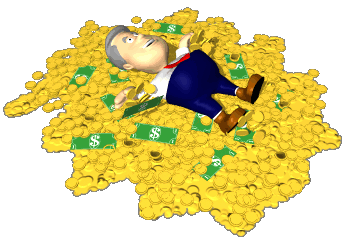
Australians earning less than $80,000 a year could be given two rounds of tax cuts as compensation for any price rises under the Gillard government's proposed carbon tax. But wealthier people "will pay a price" as the country moves to a low-carbon economy under a 10-year plan unveiled by Labor climate alter adviser Ross Garnaut.
Both sides of politics were fast to use the economist's final update to his landmark 2008 climate alter review to push their own barrow. Labor noted, properly, that the report was scornful of Tony Abbott's direct action policy because it would cost more than placing a price on carbon but not raise any revenue to compensate households with.
But the opposition leader held on another claim in the report. Prof Garnaut made clear on Tuesday that "Australian households will in due course bear the full cost of a carbon price". "So how can (the prime minister) continue to preserve that her tax only makes big polluters pay," Mr Abbott asked parliament.
"Who pays? Big polluters or households? The truth is households." A carbon price of $26 a tonne would raise about $11.5 billion in 2012/13. After the tax transitions to an release trading scheme in 2015 it could rake in much more - up to $16 billion by 2022/23.
Prof Garnaut wants 55 per cent of the revenue raised in the first three years to go to low and middle-income earners in the form of tax cuts and senior welfare payments. That could rise to 65 per cent by 2021/22. The rest of the revenue would be used to help business, drive innovation and stock up carbon in land systems.
Wealthier Australians would pick up the tab. That's because in the long run business will pass carbon costs from side to side to the users of their products. "High-income earners who don't get a tax cut or something else will experience a reduction in real incomes," Prof Garnaut told reporters.
"That's just the economics of it... people on high incomes will pay a cost." Most of the household assistance under Prof Garnaut's 10-year plan would be in the form of tax cuts, with the tax-free threshold raised to $25,000. That would result in 1.2 million Australians paying no tax.
Other rates would be rejigged to ensure people earning more than $80,000 a year wouldn't benefit. Prof Garnaut argued that as transitional aid to business declines there would be further opportunity for "a second round of tax cuts". Such a move wouldn't be bad politics, the adviser said. Ms Gillard seems to agree. She told parliament on Tuesday "tax cuts are a serious option".
The impact of a carbon price on petrol prices would be lessened by a one-off cut to the fuel excise. But business would get less under Prof Garnaut's plan than was on offer under Kevin Rudd's carbon pollution reduction scheme. Emissions-intensive, trade-exposed industries would get 30 per cent of the revenue pie for the first three years but that would decline by 1.5 percentage points annually after that.
Electricity generators would receive just three per cent until 2015 and then nothing. When it comes to pollution reduction targets, Prof Garnaut wants them determined by an independent committee. In 2014, it would review Australia's current pledge to cut emission by five per cent in 2020 relative to 2000 levels. The committee could advise much deeper reductions depending on international developments.
The world's developed countries have, on average, already vowed to cut emissions by between 10 and 16 per cent by 2020.



















No Response to "Carbon tax might be offset by tax cuts"
Post a Comment
Note: Only a member of this blog may post a comment.